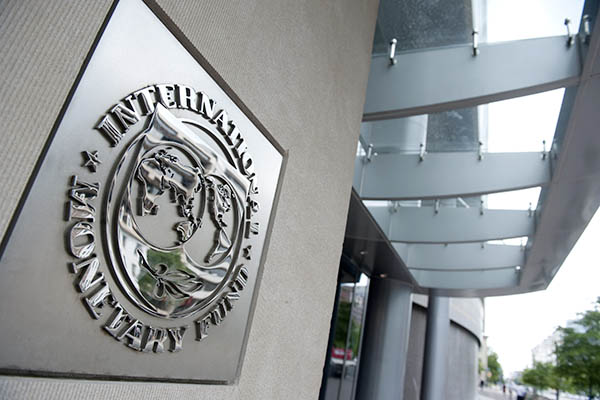
File photo. Saul Loeb—AFP
In statement, global fund says package seeks balance between supporting economy, ensuring debt sustainability, advancing structural reform
The International Monetary Fund (IMF) on Tuesday announced it will release $500 million to Pakistan after securing Executive Board approval as part of the Extended Fund Facility that was suspended last year.
In a statement issued after staff-level meetings between Mission Chief to Pakistan Ernesto Ramirez Rigo and Pakistani authorities, the global fund said an agreement had been reached on the second to fifth reviews of the government’s reform program. “The package strikes an appropriate balance between supporting the economy, ensuring debt sustainability, and advancing structural reform,” read the statement, adding that an accord had also been achieved on measures required to complete further reviews of the reform program to fulfill the full $6 billion under the EFF.
A 39-month EFF arrangement for $6 billion was approved by the Executive Board in 2019. In the past year, Pakistan has received $1.4 billion from the IMF’s Rapid Financing Instrument in separate, emergency funding to help it fill gaps stemming from the coronavirus pandemic.
In a posting on Twitter, Special Assistant to the P.M. on Finance Abdul Hafeez Sheikh said the agreement “is a good development for Pakistan.”
COVID praise
In its statement, the IMF praised Pakistan’s handling of the “COVID-19 shock,” adding that policies and reforms implemented prior to the pandemic had already started to reduce economic imbalances and set the conditions for improving economic performance. “Most of the targets under the EFF-supported program were on track to be met,” it said, lamenting that the pandemic had disrupted some improvement to allow the government to save lives and livelihoods.
IMF’s Rigo said that Pakistan’s response was aided by “the fiscal and monetary policy gains attained in the first nine months of FY2020.” In addition to health containment measures, he said, this had included a temporary fiscal stimulus, a large expansion of the social safety net, monetary policy support and targeted financial initiatives.
The statement noted that after Pakistan’s first COVID-19 wave dwindled last year, “the external current account improved, due to stronger-than-expected remittances, import compression, and a mild export recovery.” It said that “high-frequency economic data” had also begun to show signs of recovery. It also noted that Islamabad has had to recalibrate “the macroeconomic policy mix, the reforms calendar, and the EFF review schedule” in light of the pandemic.
The IMF said that Pakistan’s fiscal strategy “remains anchored by the sustainable primary deficit of FY2021 budget and allows for higher-than-expected COVID-related and social spending to minimize the short-term impact on growth and the most vulnerable.” It said that economic targets were “supported by careful spending management and revenue measures, including reforms of corporate taxation to make it fairer and more transparent.”
Central bank
The IMF lauded the State Bank of Pakistan’s role in aiding the COVID-hit economy, saying the monetary and exchange rate policies “served Pakistan well” in helping it navigate the COVID-19 shock.
“The strengthened international reserves’ position since the start of the program—with gross reserves almost doubling to $13 billion until January 2021 and net international reserves increasing by over $9 billion until December 2020—and the shock absorption displayed by the market-based exchange rate, allowed the SBP to pre-emptively proceed to a large easing of monetary policy, and a sizeable expansion of refinancing facilities,” read the statement.
The global fund cautioned, however, that while the banking system “remains healthy,” the central bank should be alert “and prevent possible financial stability stress as the temporary support is phased out.” It also predicted the country’s international reserves would improve further due to current account developments, the EFF resumption, and international partners’ support.
Future outlook
The IMF also acknowledged that authorities are “moving steadfastly on a number of other important reforms,” including strengthening regulatory agencies’ legal frameworks, consolidating SBP’s autonomy, and improving state-owned enterprises’ management. In addition, they have conducted a triage of SOE, and are moving forward with the audits of contracts awarded for COVID-19 related spending,” it said.
The global lender also hailed Pakistan’s ongoing improvement of its anti-monetary laundering/counter financing of terrorism framework, and its progress on the FATF’s action plan.
Given these improvements, said the IMF, Pakistan’s economy is “projected to expand by 1.5 percent in FY2021 from the -0.4 percent in FY2020.” However, it cautioned, the ongoing COVID-19 pandemic means that any future outlook was “subject to a high level of uncertainty and downside risks.”
